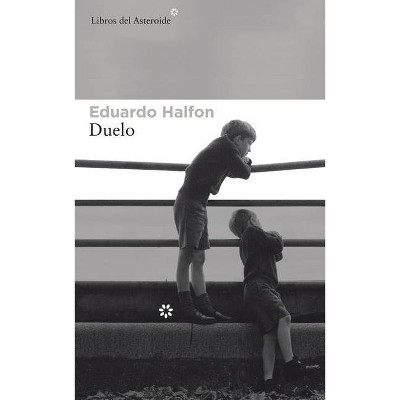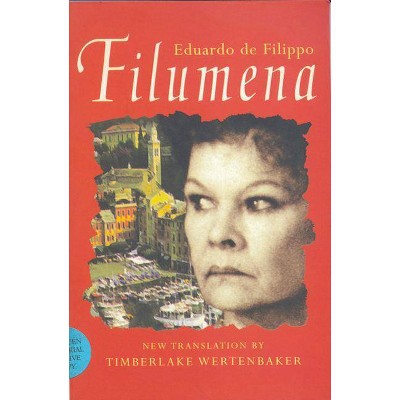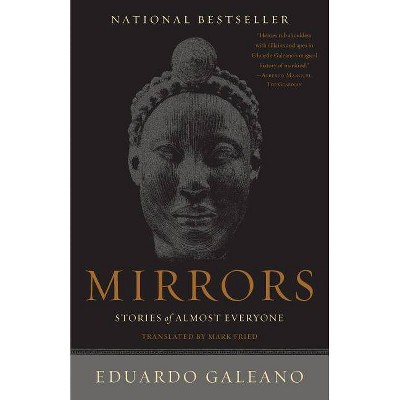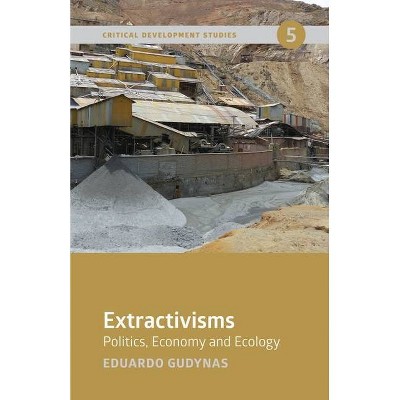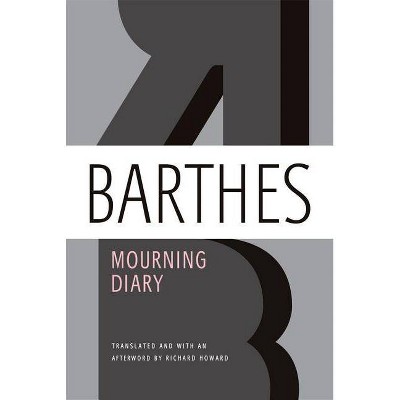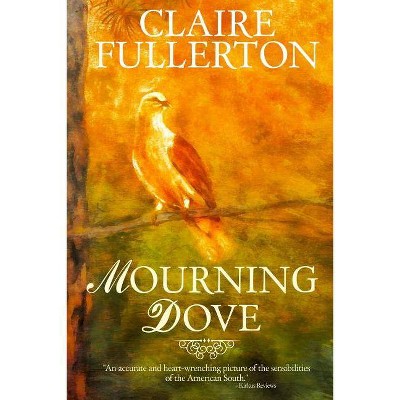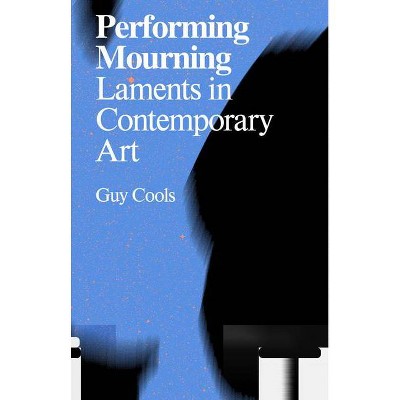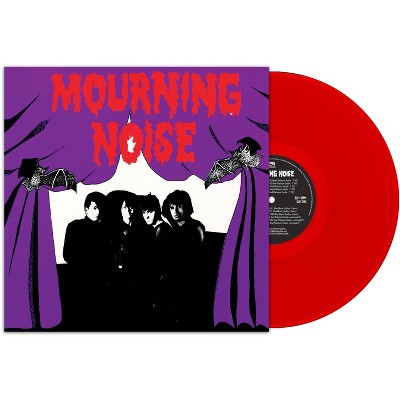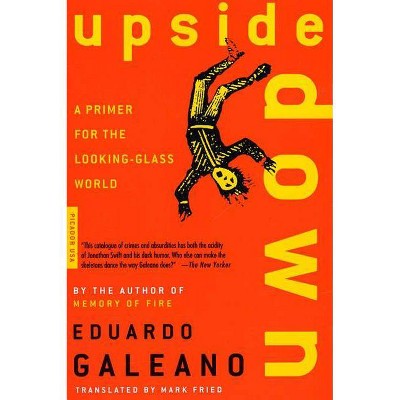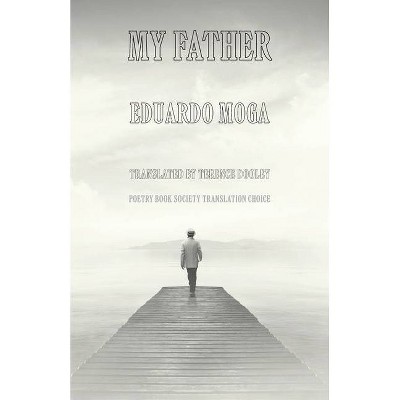Mourning - by Eduardo Halfon (Paperback)
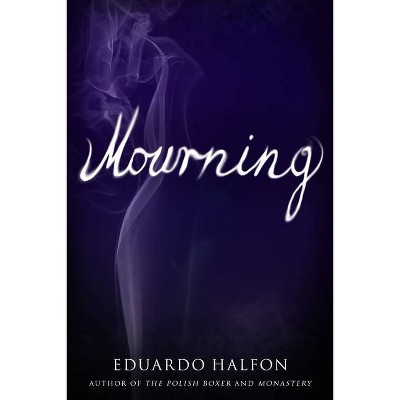
Similar Products
Products of same category from the store
AllProduct info
<p/><br></br><p><b> About the Book </b></p></br></br><p>A mysterious family tragedy inspires a journey across the globe, into the past, and through the tangled memories of childhood.</p><p/><br></br><p><b> Book Synopsis </b></p></br></br><p><b>International Latino Book Award Winner<br>Edward Lewis Wallant Award Winner<br>Kirkus Prize Finalist<br>Neustadt International Prize Finalist<br>Balcones Fiction Prize Finalist<br>PEN Translation Prize Longlist</b></p><p>"A feat of literary acrobatics." --<b><i>New York Review of Books</b></i></p><p>In <i>Mourning</i>, Eduardo Halfon's eponymous narrator travels to Poland, Italy, the U.S., and the Guatemalan countryside in search of secrets he can barely name. He follows memory's strands back to his maternal roots in Jewish Poland and to the contradictory, forbidden stories of his father's Lebanese-Jewish immigrant family, specifically surrounding the long-ago childhood death by drowning of his uncle Salomón. But what, or who, really killed Salomón? As he goes deeper, he realizes that the truth lies buried in his own past, in the brutal Guatemala of the 1970s and his subsequent exile to the American South.</p><p><i>Mourning</i> is a subtle and stirring reflection on the formative and destructive power of family mythology, silence, and loss.</p><p><b>Eduardo Halfon</b> moved from Guatemala to the United States at the age of ten and attended school in South Florida and North Carolina. The recipient of a Guggenheim Fellowship, Roger Caillois Prize, José María de Pereda Prize for the Short Novel, and Guatemalan National Prize in Literature, he is the author of two previous novels published in English: <i>The Polish Boxer</i>, a <i>New York Times</i> Editors' Choice selection and <i>Monastery</i>, longlisted for the Best Translated Book Award.</p><p/><br></br><p><b> Review Quotes </b></p></br></br><br><p><b>Praise for <i>Mourning</i></p><p>International Latino Book Award Winner<br>Edward Lewis Wallant Award Winner<br>Kirkus Prize Finalist<br>Neustadt International Prize Finalist<br>Balcones Fiction Prize Finalist<br>PEN Translation Prize Longlist<br><i>Smithsonian</i> magazine "Favorite Book of the Year" selection<br><i>Kirkus Reviews</i> "Best Book of the Year" selection<br>Americas Society/Council of the Americas "Favorite Book of the Year" selection<br><i>Literature in Translation</i> "Favorite Book of the Year" selection<br><i>Library Journal</i> "Top Work in Translation" selection<br><i>Words Without Borders</i> "Watchlist" selection<br><i>Jewish Week</i> "Spring Arts Preview" selection</b></p><p>"A feat of literary acrobatics." --<b><i>New York Review of Books</b></i></p><p>"Halfon is a master." --<b><i>Smithsonian</i> magazine</b></p><p>"Elegant and meditative." --<b><i>Words Without Borders</b></i></p><p>"Brimming with subtle mystery, inquisitiveness, oddity, coincidence, and melancholy. . . . A highly entertaining tragedy, a fascinating page-turner." --<b><i>Asymptote Journal</b></i></p><p>"A careful, precise story that explores the many facets of loss and healing." --<b><i>World Literature Today</b></i></p><p>"Powerful, gorgeous. . . . Halfon gives an unforgettable, haunting voice to lesser-known populations of the Jewish diaspora, including Latin American and Lebanese Jews. <i>Mourning</i> shows how the weaving together of diasporic families across cultures and places creates ripples through generations." --<b>Jewish Book Council</b></p><p>"Evocative. . . . <i>Mourning</i> is a mystery, a drama and a fictional memoir. It is a book that manages to be both melancholy in tone yet triumphant in spirit." --<b><i>Jewish Boston</b></i></p><p>"Halfon is the sort of traveler who admits he knows nothing, yet finds enlightenment everywhere. <i>Mourning</i> emits some little illumination of human nature on every page." --<b><i>Rumpus</b></i></p><p>"With his slender but deceptively weighty books, which are at once breezy and melancholic, bemused and bitter, [Halfon] opens up worlds to readers in return." --<b><i>Kirkus Reviews</i> (starred review)</b></p><p>"An unforgettable exploration of one family's fluid, collective memory." --<b><i>Booklist</b></i></p><p>"Halfon spins a bewitching tale. . . . Careful, arresting prose brings everything together in a moving, evocative story of the narrator's bloodline." --<b><i>Publishers Weekly</b></i></p><p>"[Halfon] clarif[ies] in fluid, accessible language that however slippery, memory is essential to who we are." --<b><i>Library Journal</b></i></p><p>"Halfon's writing hits a virtual ecstasy." --<b>Jonas Mekas</b>, director of <i>As I Was Moving Ahead Occasionally I Saw Brief Glimpses of Beauty</i> at <i>Electric Literature</i><p><b>More Praise for Eduardo Halfon, <i>Monastery</i>, and <i>The Polish Boxer</i></b></p><p>"Halfon's books center around journeys, travel for pleasure and work, travel for all the reasons that make immigrants leave home. . . . At the end of each journey, what Halfon finds is something other than what he set out to discover. . . . Guatemalan, Jewish, Lebanese, Polish, American--the narrator is a composite of identities; he comes from a range of places and doesn't quite belong anywhere. . . . What's most surprising is that these books, which take on such dark subjects, are so enjoyable to read." --<b><i>New York Review of Books</b></i></p><p>"Part Jorge Luis Borges, part Sholom Aleichem. . . . What Eduardo Halfon accomplishes in his books--the work of excavating, remembering, mourning--is crucial if we hope to avoid the mistakes of the past. But his non-traditional methods and melodies, the peculiar observances that emerge in his writing, offer the promise of something completely original: a Guatemalan, Jewish blend that is just now beginning to breathe." --<b><i>Rumpus</b></i></p><p>"Halfon passionately and lyrically illustrates the significance of the journey and the beauty of true mystery." --<b><i>Booklist</b></i></p><p>"Halfon gives voice to a lesser-known sector of the Jewish diaspora, reminding us in the process of the ways in which identity is both fluid and immutable." --<b><i>Publishers Weekly</b></i></p><p>"A rising star among Latin writers, Halfon is a lively traveling companion." --<b><i>Kirkus Reviews</b></i></p><p>"Eduardo Halfon is a brilliant storyteller." --<b>Daniel Alarcón</b>, author of <i>Lost City Radio</i> and <i>The King Is Always Above the People</i></p><p> "Halfon's prose is as delicate, precise, and ineffable as precocious art, a lighthouse that illuminates everything." --<b>Francisco Goldman</b>, author of <i>Say Her Name</i> and <i>The Interior Circuit</i></p><p>"It is not often that one encounters such a mix of personal engagement and literary passion, or pain and tenderness." --<b>Andrés Neuman</b>, author of <i>Traveler of the Century</i> and <i>How to Travel Without Seeing</i></p><p><b>On <i>Monastery</i></b></p><p>"A moving, reflective, and humbly resounding work of fiction. . . . As an ambassador of both worldly wonder and sublime storytelling, Eduardo Halfon's <i>Monastery</i>, despite its brevity, is truly a marvel." --<b>Best Translated Book Award Longlist citation</b></p><p>"[The protagonist] may be the perpetual wanderer, but his meditations are focused and absorbing." --<b><i>Library Journal</i> Indie Fiction in Translation of the Year citation</b></p><p>"Offer[s] surprise and revelation at every turn" --<b><i>Reader's Digest</b></i></p><p>"One senses Kafka's ghost, along with Bolaño's, lingering in the shadows." --<b><i>New York Review of Books</b></i></p><p>"Intelligent and authentic." --<b>Jewish Book Council</b></p><p>"<i>Monastery</i>, which looks at Guatemala and the world from the divided perspective of a Jew and Guatemalan, [displays] a constantly surprising sensitivity, even tenderness toward both worlds and the ways they resonate even when they appear deaf to each other. . . . In the admirable translation by Lisa Dillman and Daniel Hahn, the idiomatic, contemporary American English voice comes across as innate to this cosmopolitan narrator, without losing all its Spanishness." --<b><i>The Common</b></i></p><p><b>On <i>The Polish Boxer</i></b></p><p>"The hero of Halfon's novel delights in today's risible globalism, but recognizes that what we adopt from elsewhere makes us who we are." --<b><i>New York Times</i> (Editors' Choice)</b></p><p>"A Borgesian, post-Communist-era, comic detective noir." --<b><i>New York Review of Books</b></i></p><p>"Engrossing." --<b>NBC Latino</b></p><p> "Fantastic." --<b>NPR <i>Alt.Latino</i></b></p><p>"Elegant." --<b><i>Marie Claire</b></i></p><p>"Deeply accessible, deeply moving." --<b><i>Los Angeles Times</b></i></p><p>"Tight and lean . . . falling somewhere between the novels of Roberto Bolaño, WG Sebald, and Junot Díaz." --<b><i>Telegraph</b></i></p><p>"[Halfon] has succeeded in warping a modern Balkan mystery into a Holocaust memoir . . . intrinsically blend[ing] fiction with reality in a deeply visceral way." --<b><i>Rumpus</b></i></p><p>"The most memorable new novel I have read all year, the voice pitch-perfect, the imagery indelible. What a wonderful writer." --<b>Norman Lebrecht</b>, author of <i>The Song of Names</i> and <i>Why Mahler?</i></p><br><p/><br></br><p><b> About the Author </b></p></br></br><p><b>Eduardo Halfon</b> was born in Guatemala City, moved to the United States at the age of ten, went to school in South Florida, studied industrial engineering at North Carolina State University, and then returned to Guatemala to teach literature for eight years at Universidad Francisco Marroquín. Named one of the best young Latin American writers by the Hay Festival of Bogotá, he is also the recipient of a Guggenheim Fellowship, Roger Caillois Prize, José María de Pereda Prize for the Short Novel, and Guatemalan National Prize in Literature. He is the author of fourteen books published in Spanish and three novels published in English: <i>Mourning</i>, winner of the International Latino Book Award and Edward Lewis Wallant Award, finalist for the Kirkus Prize, Neustadt International Prize, and Balcones Fiction Prize, and longlisted for the PEN Translation Prize; <i>Monastery</i>, longlisted for the Best Translated Book Award; and <i>The Polish Boxer</i>, a <i>New York Times</i> Editors' Choice selection. Halfon currently lives in Nebraska, frequently travels to Guatemala, taught creative writing at the University of Iowa, and recently received a fellowship from Columbia University to write his next book in Paris.</p><p><b>Lisa Dillman</b> translates from Spanish and teaches in the Department of Spanish and Portuguese at Emory University in Atlanta, Georgia. She has translated numerous books by Spanish and Latin American writers including Eduardo Halfon, Andrés Barba, Christopher Domínguez Michael, Sabina Berman, and Yuri Herrera. Her translation of Herrera's <i>Signs Preceding the End of the World</i> received the Best Translated Book Award.</p><p><b>Daniel Hahn</b> is a writer, editor, and translator with some fifty books to his name, including novels by José Eduardo Agualusa, Eduardo Halfon, and Juan José Millás. His translations from Portuguese, Spanish, and French include fiction from Europe, Africa, and the Americas and nonfiction by writers ranging from Portuguese Nobel laureate José Saramago to Brazilian footballer Pelé. He is also the editor of the new <i>Oxford Companion to Children's Literature</i>. He lives in Lewes, England.</p>
Price History
Cheapest price in the interval: 14.99 on October 22, 2021
Most expensive price in the interval: 14.99 on November 8, 2021
Price Archive shows prices from various stores, lets you see history and find the cheapest. There is no actual sale on the website. For all support, inquiry and suggestion messagescommunication@pricearchive.us
